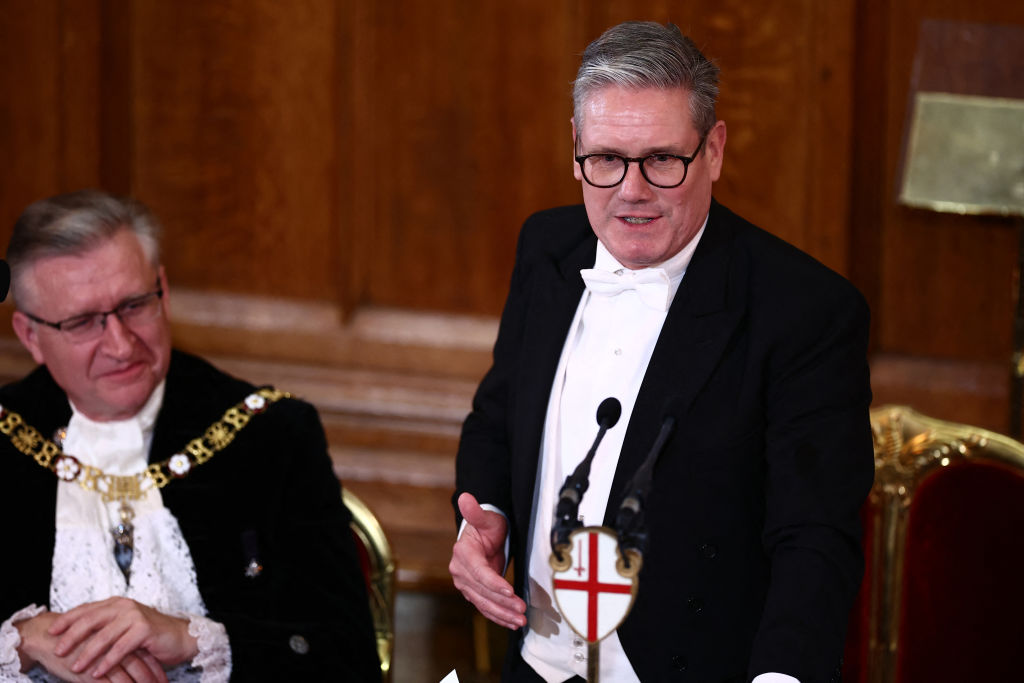Keir Starmer is preparing to give his big reset speech on Thursday. But the more interesting address is perhaps the one he gave last night. The annual Lord Mayor’s Banquet was the setting for the Prime Minister to give his first major speech on foreign policy since entering No. 10. The most interesting passage saw Starmer reject the notion that Britain will need to pick sides between the US and EU under the looming Trump presidency – particularly in the event of a trade war. ‘I reject it utterly. Attlee did not choose between allies, Churchill did not choose,’ he said. ‘The idea that we must choose between our allies, that somehow we’re with either America or Europe, is plain wrong.’
Starmer looks to be signalling a return to realpolitik
By convention, the Prime Minister’s Guildhall speech focuses on Britain’s place in the world. Starmer’s aforementioned remarks were themselves utterly conventional too. You can imagine a variation of this sentiment being uttered by every single one of his postwar predecessors. Each of them wrestled between looking East to Brussels or West to Washington; most of them publicly rejected it as a false choice. Churchill envisaged Britain at the centre of three concentric circles of Europe, Commonwealth and America. In a post-Brexit world, it makes sense for Starmer to keep his options open – especially given the political turmoil engulfing both Paris and Berlin.
Yet the strategic ambiguity at the heart of Starmer’s Guildhall speech is all the more striking given his administration’s actions in office. The decision to hand over the Chagos Islands – thus ensuring the sun finally sets on Churchill’s beloved Empire – looks increasingly like a misjudgement. The new American and Mauritian governments have both signalled their displeasure. Jonathan Powell, Starmer’s new National Security Adviser, has now been forced to conduct an undignified shuttle diplomacy to try to rush it over the line.
On Gaza, ministers’ past promises to follow the International Criminal Court’s judgments have alienated both Israel and the incoming Trump administration. Labour’s boasts of a return to a ‘rules-based order’ were both a reaction to the Brexit-era Tory governments and a product of Starmer’s legalistic mindset. But outsourcing foreign policy judgements to an overseas court prone to making political decisions is one that risks forcing Britain to alienate long-standing allies for little obvious gain.
Now though, Starmer looks to be signalling a return to realpolitik. His remarks on Russia explicitly mentioned the likelihood of peace talks, declaring that ‘We must continue to back Ukraine and do what it takes to support their self-defence for as long as it takes – to put Ukraine in the strongest possible position for negotiations.’ It is a noticeable shift in rhetoric and comes just seven months after Rishi Sunak’s Downing Street denied that peace talks were being explored.
An emphasis on interests, not values, is certainly Donald Trump’s approach to diplomacy. Given Britain’s dependance on America in virtually every international arena, it may become Keir Starmer’s mantra too.
Listen to more on Coffee House Shots:







Comments